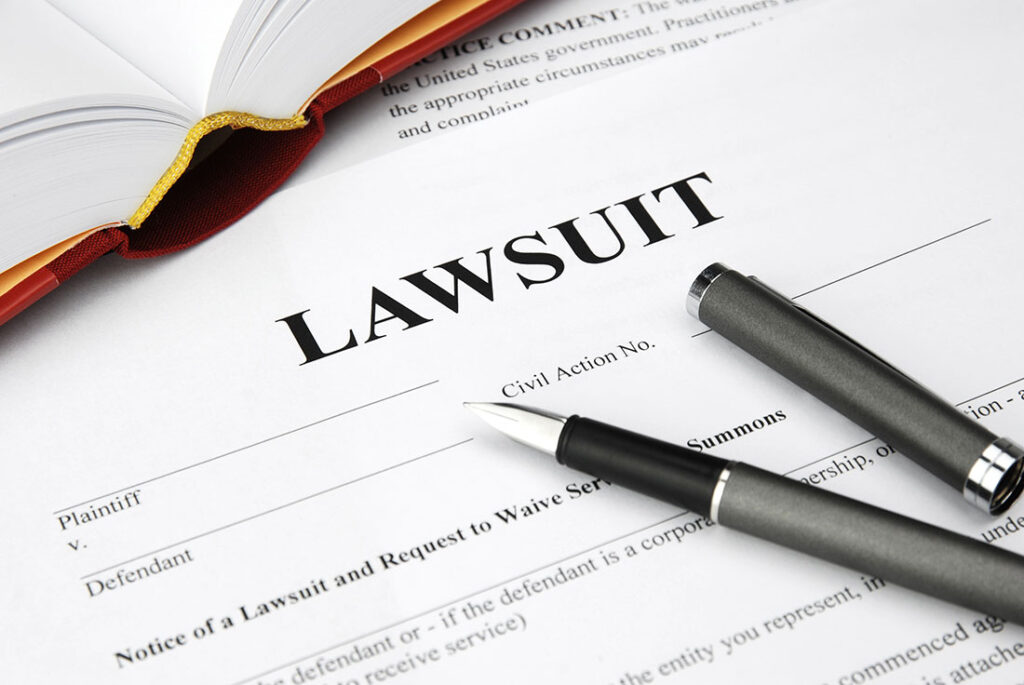One of the worst – and unfortunately common – lawsuits that a security guard firm can face is a wrongful death suit. These lawsuits are typically filed when a security guard is involved in an incident that leads to the death of someone nearby. The relatives of the deceased then sue the security guard company for being liable for the incident.
While insurance can potentially help cover the fees associated with these kinds of serious lawsuits, it’s still a mark that no security company wants on their record, and the bad publicity associated with a noteworthy wrong death lawsuit may ruin a business permanently. We saw a growing number of such suits in 2019, which means all security firms should take some time to review: How do you avoid wrongful death issues, and what practices keep your company safe from these lawsuits? Here are the tips to keep in mind.
Minimal Restraint Until Law Enforcement Arrives
Two of the wrongful death cases seen last year were filed against the same Las Vegas branch of Securitas Security Services for two separate incidents, both of which offer valuable lessons for firms seeking to avoid similar problems.
In the first incident, security guards hired for mall security found a 36-year-old man acting erratically. The security guards stepped in, and, according to suit, “dog-piled” the man, sat on him, and restricted his breathing until he passed out, then died. The man was later found to have been diagnosed with schizophrenia, and drugs were found in his system.
There are several problems here. Notably, it’s not clear that the man was posing a threat to anyone at the mall, so the type of intervention chosen by the security guards appears extreme and unwarranted. Whether or not the security company is found at fault in this suit (it should be noted that a police investigation concluded there was not enough evidence for a prosecution), security guard should know this type of force is rarely warranted, especially when there are other options to deal with a mentally ill person.
In situations where someone is acting erratically and guards are worried they could become a danger, they should immediately contact local law enforcement, and then focus on minimal containment or restraint. If greater force is needed, let the police decide – guards should focus on keeping people and property safe.
Strict Rules with Firearms
The second lawsuit for the Las Vegas firm involves an attempted jewelry robbery. During this incident, a security guard opened fire on person attempting the robbery, and accidentally shot and killed a jewelry store employee. This wrongful death suit focuses on allegations that the guard was not trained to use his firearm appropriately.
This underlines the great liability risks that occur when security guards are equipped with firearms, especially if they haven’t been properly trained. Rigorous training and certifications for any type of weapon is a key requirement, and this training should be regularly continued and updated for all guards. Guards should always be trained to minimize use of firearms in incidents. No guard should pull a gun on a fleeing target, no matter what they are fleeing from. No guard should aim a gun in the direction of bystanders. Firearms should only be used in the strictest scenarios, and security firms must carefully explain what those scenarios are.
Remember that Security Cams (and Smartphones) are Always Watching
Here’s another shooting that teaches a valuable lesson: A security guard in Salem, OR first tased, and then shot and killed a man after accusing him and his friends of trespassing on restaurant property. Again, there’s a lot wrong with this scenario, but especially noteworthy is that the security guard attempted to lie about what happened. He claimed that he fired in self-defense. However, the incident was picked up by nearby security cams, which conflicted with his story and led to charges of murder…followed by a wrongful death lawsuit.
This is a prime example of an “aggravating factor” that could easily lead to a much higher settlement or judgment, and a dangerous blow to the security firm. It’s also a lesson every security guard should know: Don’t try something foolish like lying about the incident. Security cams and bodycams are more common than ever and only growing in popularity, so there’s always a good chance that the incident is being recorded. In a public place, it may also be likely that someone is recording with a smartphone. It’s smart to assume that the incident is going to be on video for both police and any suits that may develop – so guards should always act accordingly.
Stay Calm if a Fight Erupts
While not a wrongful death suit, this successful lawsuit from Los Angeles in the early 2010s points to a final lesson guards should know: Stay calm during a fight. This security guard encountered a bar fight and tried to break it up. Unfortunately, he used unnecessary force and ended up causing a devastating skull injury to a bar patron, who was also trying to break up the fight. These are the moments when a guard needs to be particularly calm, aware of everyone around, and able to handle the situation effectively without violence. Are your guards trained to deal with events like bar fights the correct way?
In all cases, it’s important for a security firm to practice careful training and mitigation techniques that focus on protection. Well-trained and experienced guards will be able to avoid decisions that put the company at risk through their actions.






